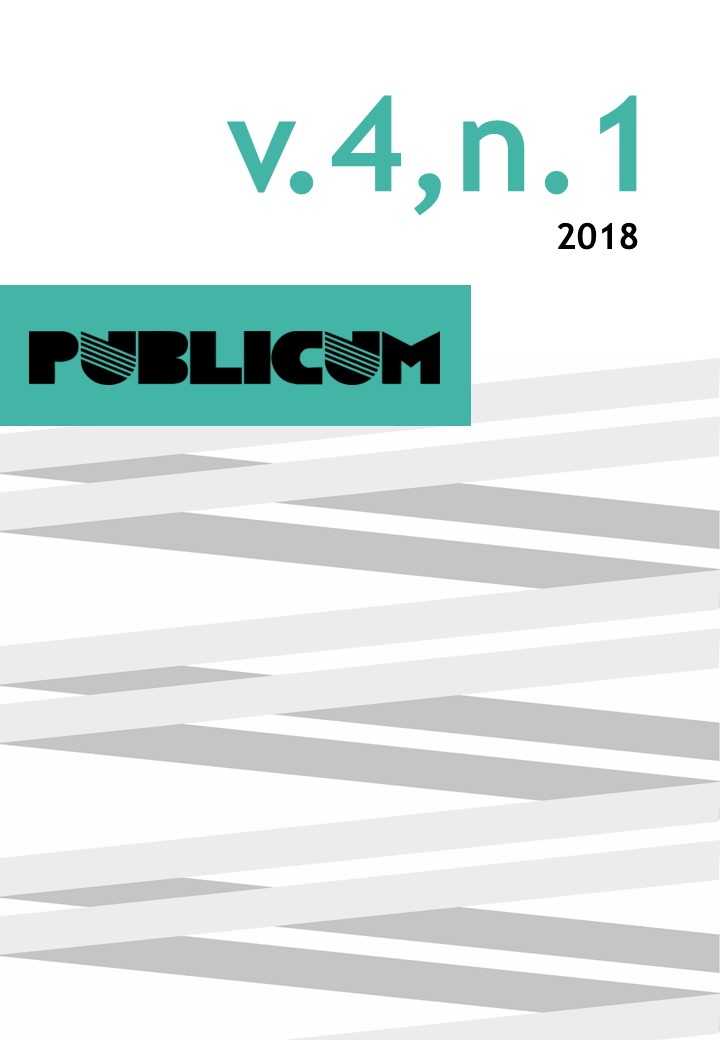Social movements (im)possibilities of accessing Brazil’s Supreme Court (STF) jurisdiction: Some limiting factors
DOI:
https://doi.org/10.12957/publicum.2018.31958Keywords:
Constitutional jurisdiction, social movements, legitimacy, judicial review, amicus curiae, public hearings.Abstract
The aim of the present paper is to carry out a critical analysis of social movements possibilities of accessing Brazil’s Supreme Court (STF) constitutional jurisdiction. Intending to debunk the current idea that the STF acts in an open and democratic fashion, legitimizing itself as a “societal argumentative representative”, certain factors that limits the access to the court will be presented. Initially, some restrictions and issues deriving from legal speech itself will be approached. The second part carry out a critique of the way the STF has read article 103, IX of the Brazilian Constitution, which has restricted the legitimacy of civil society to trigger its concentrated judicial review, exploring some of its consequences. Afterwards, obstacles related to concrete judicial review will be analyzed, focusing on the difficulties and limitations of the procedural instruments designed to protect fundamental rights and on the deficiencies of the Public Prosecution Service as a possible substitute. Finally, it will be exposed some difficulties and problems over the way amicus curiae and public hearings have been materialized in STF’s custom, that may weaken a discourse of the Court’s broad openness and democratization
Downloads
Published
How to Cite
Issue
Section
License
The author(s) of the paper declare(s) to know and agree to the following rules:
1) The author(s) undertook the work presented to the journal, being entirely responsible for the ideas and concepts therein transmitted, which do not necessarily correspond to the point of view of Publicum’s Editors.
2) The ethical principles alluded to in the evaluation policy of the journal [RDN1] were met in the conduction of the work presented to submission.
3) The author(s) assume(s) authorship and responsibility for their work, declaring that it does not infringe any third party intellectual property rights.
4) The author(s) take(s) full responsibility for moral or patrimonial damages that the distribution of the work may generate to third parties.
5) The author(s) grant(s) the journal the rights to reproduce, edit and first publish the paper in any media – in particular in digital form – in an electronic archive on the Internet.
6) The author(s) confer(s) the right to the editors to modify the text submitted, without prejudice of its contents, when necessary to standardize the presentation of the works and to meet the norms of the journals’ own edition.
7) The author(s) agree(s) to the final form of the paper approved by the journal.
8) The author(s) authorize(s) the disclosure of the paper in the channels of communication of the Faculty of Law of UERJ.
9) The author(s) agree(s) with the reproduction of short extracts from the paper in other UERJ publications.
10) The author(s) recognize(s) that, through the abovementioned assignment and authorizations, he/she/they will not receive payment under any modality, meaning these will have the nature of scientific collaboration.
11) The author(s) is(are) aware that publication of the work may be refused if it is not considered appropriate, for any reason, whatsoever, and such refusal does not create responsibility and/or burdens of any kind to the journal or UERJ.
[RDN1]Ver COPE.

Publicum está licenciado com uma Licença Creative Commons Atribuição-NãoComercial 4.0 Internacional.

